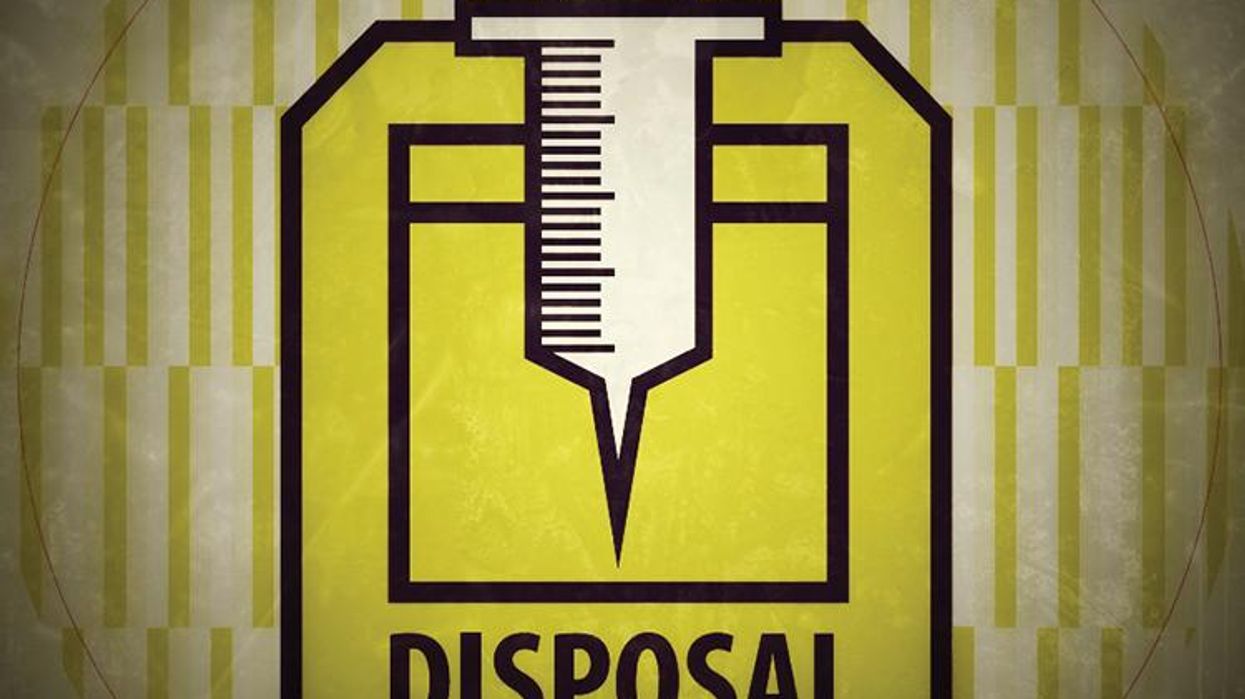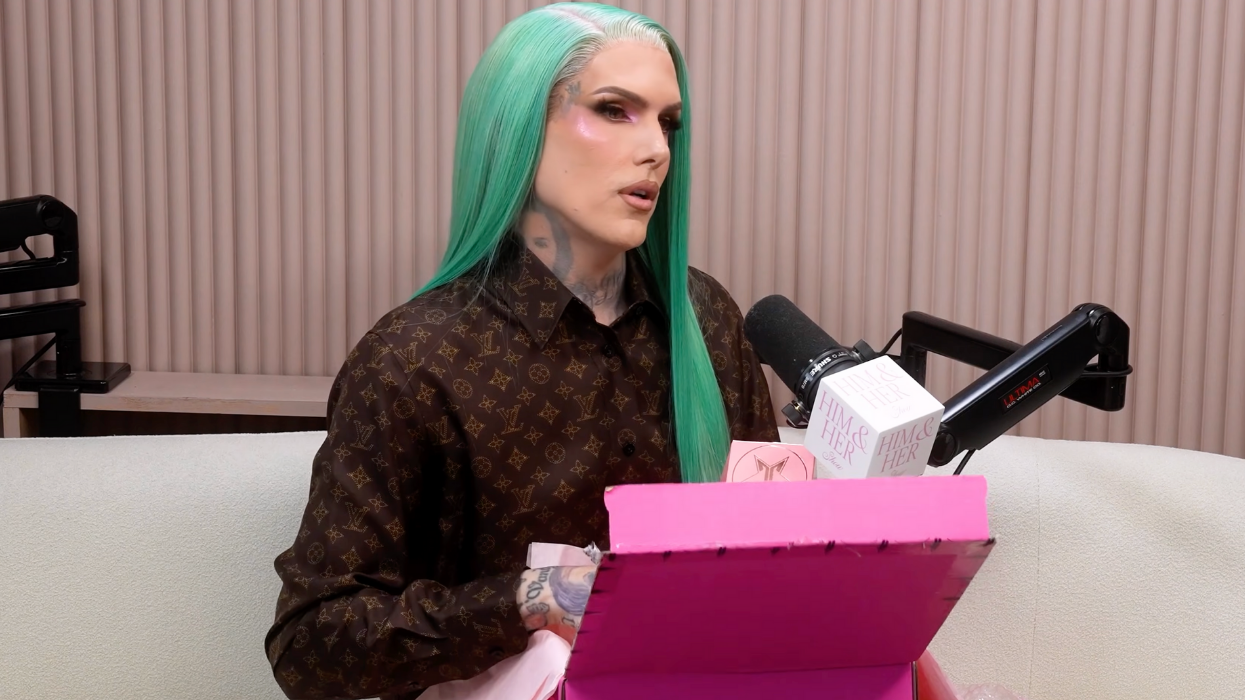Australian Needle Exchange program poster.
The tide is slowly turning against the absolutist "drugs must be eliminated" rhetoric that has dominated much of the conversation regarding recreational drug use and HIV/AIDS. Advocates of harm reduction, often understood to be the progressive alternative to the War on Drugs, have had a number of wins lately. When you consider the disproportionate effect drug cultures and HIV/AIDS have on LGBT communities, that's got to be a good thing, right?
As defined by the Harm Reduction Coalition, harm reduction is "a set of practical strategies and ideas aimed at reducing negative consequences associated with drug use. Harm reduction is also a movement for social justice built on a belief in, and respect for, the rights of people who use drugs."
Perhaps the most contentious aspect of reducing the harm associated with drug use is the ongoing availability of needle and syringe exchange programs. These programs help ensure that clean, fresh injecting equipment is available at low to no cost for injected-drug users. The sharing or reusing of injecting equipment is one of the driving forces behind new HIV infections in many parts of the world, including the United States.
Last year, Indiana experienced an HIV outbreak driven largely by injected-drug use. In one county, the incidence rate of HIV was higher than that in any country in sub-Saharan Africa. Although this is an extreme example, we're seeing a schism in how injected-drug-related HIV infection, which intersects numerous classes, races, and sexual statuses, is struggling to get the attention and support it sorely needs.
So does harm reduction work, or does it simply enable drug users? For a clear answer, we can look to Australia.
Harm reduction is one the key differences between how Australia and the U.S. dealt with the AIDS epidemic. While Australian leaders definitely adopted some of the Reagan-era "Just say no" rhetoric, they also rolled out extensive needle and syringe exchange programs and even opened a supervised injecting center in the heart of Sydney's red light district, Kings Cross.
This approach, controversial at times and the subject of much scrutiny, has been so successful that the epidemic of HIV infections via injected-drug use was more or less halted in Australia. With the spread of HIV through injected-drug use contained, along with a proactive and empowering mobilization of sex workers, HIV in Australia has largely been driven by sexual contact between men.
Which is not to say that people living with HIV in Australia are not injecting drugs, or that no new infections are the result of shared injecting equipment. However, the harm-reduction stance adopted by the federal government, which was then rolled out to the states and territories, has meant that people who use drugs are included in programs, funding, and strategies.
Compare that with the U.S., which only in late 2015 lifted its federal ban on funding for needle and syringe exchange programs. The dogmatic and stigmatizing approach of the War on Drugs over the past few decades has proved to be more like a war on vulnerable people, with people who use drugs trapped within a system that includes excessive imprisonment, moralizing from the media and elected officials, and inflexible narratives of "addiction."
LGBT communities have constantly innovated when it comes to harm reduction, owing to our higher-than-average use of illicit substances such as crystal meth. In a moment in history when harm-reduction alternatives are finally receiving federal funding, this is an excellent opportunity for the LGBT community to apply our notions of radical self-love to those who choose to use drugs and may need help in staying HIV-negative.
Like what you see here? Subscribe and be the first to receive the latest issue of Out. Subscribe to print here and receive a complimentary digital subscription.

















